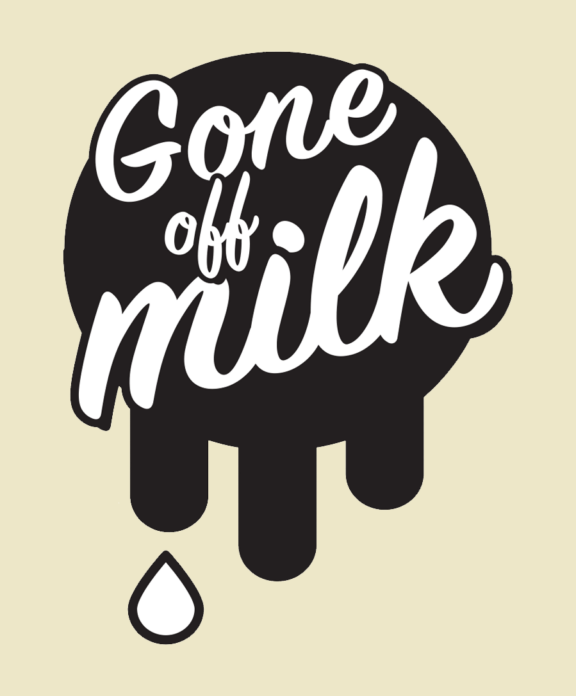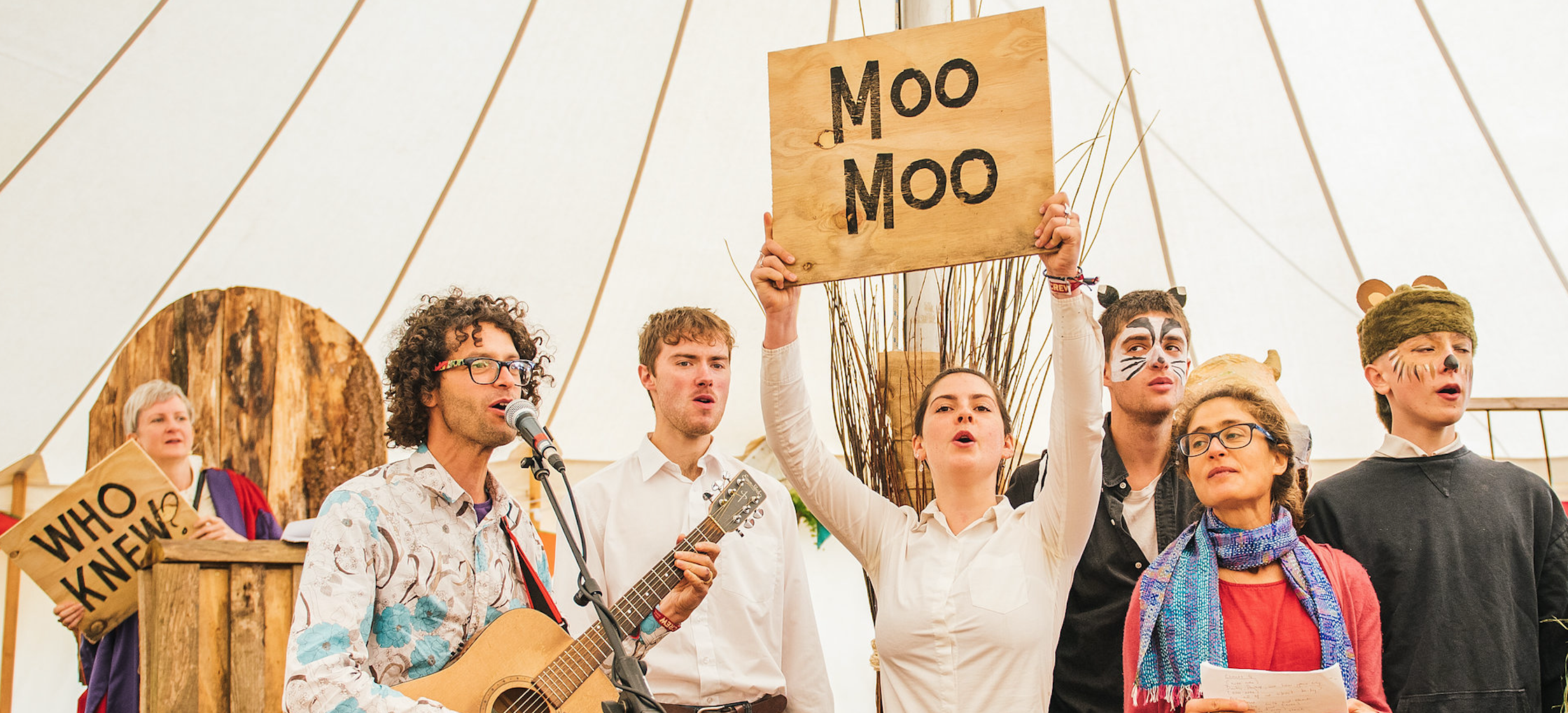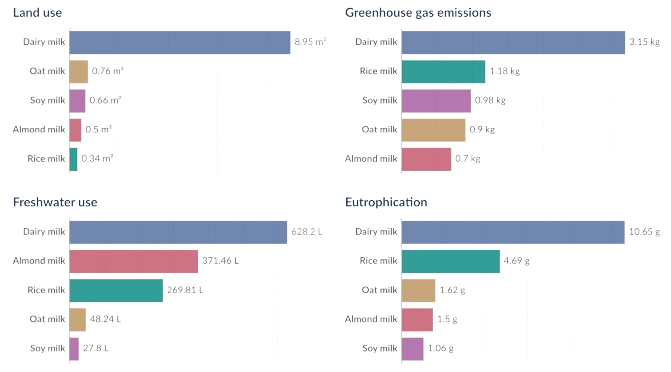 Shambala Has Gone Off Milk:
Shambala Has Gone Off Milk:
The ‘Uncondensed’ Version – Cow’s Milk vs Various Plant Based Alternatives:
Since 2019, all hot drinks purchased on site are free of cow’s milk. Instead, our traders offer a range of dairy-free, plant-based alternatives.
The sustainability of any plant-based milk is dependent on crop type, supply chain, travel miles and individual brand ethics. We’ve done our research, and trawled the Ethical Consumer ratings and will only be providing the most sustainable options – in a nutshell, oat, coconut, (European grown) soy and hemp are on the menu, and rice and almond milk are not.
Read our short ‘condensed’ milk statement here.
In preparation for this initiative, we did a lot of digging into the impacts of different milk types. This is what we’ve learnt:
Oat Milk:
- Here in the UK, this is environmentally the best bet.
- It can be grown locally, uses the least amount of water and produces the least amount of CO2.
- It was also incidentally the winner in the Shambala HQ blind taste-testing, ‘cos it’s properly creamy in a coffee.
- As far as individual brands go, Minor Figures are best – as their oats are grown in the UK.
- On site at Shambala we Use Wild & Furrow as the oats are grown 5 miles up the road and delivered in glass – avoiding non-recyclabe tetrapaks.
- However, Oat Milk does contain gluten, which makes it unsuitable for folks with coeliac disease or gluten intolerance so we will be offering a wider selection of alternatives.
Coconut Milk:
- As coconuts are not farmed in Europe, coconut milk in the UK has a higher carbon output than alternative locally sourced crops.
- However it does have one of the smallest water footprints.
- The true environmental impact of coconut milk depends on the brand and producer. Our research has shown ‘Lucy Bee Coconut Milk’ to be the best bet here – they use 100% organic coconuts, sourced entirely from agroforestry environments – where coconut and banana palms grow amongst the natural tropical vegetation. It’s one of the most environmentally friendly agricultural production systems in existence.
Almond Milk:
- This requires a huge amount of water – but still 2.5 times less than cows milk.
- California produces 80 – 90% of the worlds almond supply. Water required for growing these almonds is sourced from aquifers hundreds of metres beneath the earth’s surface. Up to 25cm of subsidence a year has been recorded in some areas of California as a result of the drilling process.
- It’s also worth noting that pesticides used during almond farming are adversely affecting the California bee population.
Soy Milk:
- This can be a contentious one, as soya farming has long been associated with deforestation however the soy milk brands on offer at Shambala will be those which only source their soya beans from within Europe.
- It’s worth noting that only 6% of soya produced globally is consumed by humans, whilst the rest is grown for animal feed – another reason why the current mass agriculture model (including the cow’s milk industry) is so damaging to the planet.
Hemp Milk:
- This is an amazing source of plant-based protein and has a higher calcium content than most dairy milk. ‘Good Hemp‘ is the specific brand that scored highest on our hemp milk sustainability testing.
- Hemp milk is completely allergen-free, meaning that it’s a great dairy alternative for those who have problems with nuts and soya.
- Hemp is one of the more environmentally friendly crops to farm – however, most hemp sourced for milk in the UK comes from China and Canada, with only a small portion being sourced from the EU.
- It is currently an expensive option.
Rice Milk:
- This is a great alternative for those who suffer from nut and gluten allergies.
- However, the warm, waterlogged soil required to grow rice acts a slow release source of methane.
Cow’s Milk:
- Cow’s milk uses by far the highest amount of water, even compared to Almond milk – with each litre of milk using 1,020 litres of water.
- 26% of the earth’s terrestrial surface is used for livestock grazing.
- In terms of transport, dairy milk is easiest to source locally. However, the carbon and other GHG emissions saved from local distribution are vastly outweighed by the transportation of food for the dairy industry.
- The manure from cows produces 3% of Britain’s total GHG emissions and 25-30%[1] of its methane.[i] Although methane has a shorter lifetime in the atmosphere compared with carbon dioxide, it is significantly more efficient at trapping radiation. The comparative impact of methane is more than 25 times greater than carbon dioxide over a 100-year period. As well as the GHG emissions resulting from milk production, water consumption in the dairy industries has a large environmental impact.
For us, this is a no brainer…
Every non-dairy option has it’s pros and cons, but the science shows that even keeping the negatives in mind, cow’s milk is by far the worst for overall environmental impacts – and (whilst this is an environmental initiative for us rather than an ethical one) it seems important to at least mention the brutal reality of most dairy farms. If you want to go down that particular rabbit hole, you can do so here.
With the help and support of our audience – the most open minded, conscious bunch out there, we’ve been pioneering new green initiatives for the past 18 years – we’re 100% renewably powered, seven times carbon net positive, proudly vegetarian and disposable plastics free. However the climate clock keeps ticking, as laid out in the recent IPCC report and we refuse to stand still.
This is our next step, and we hope you’ll come with us.
We’ll pop the kettle on.







